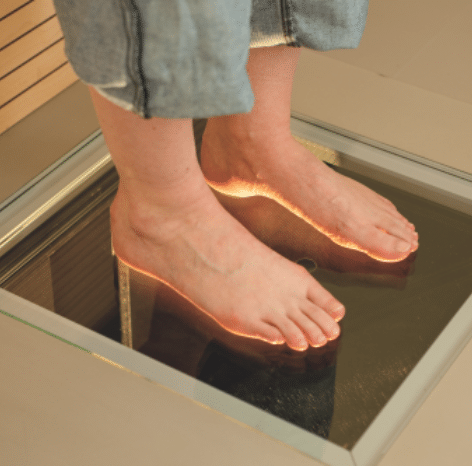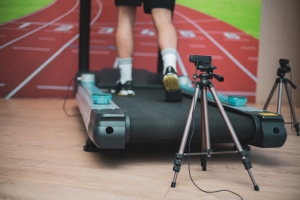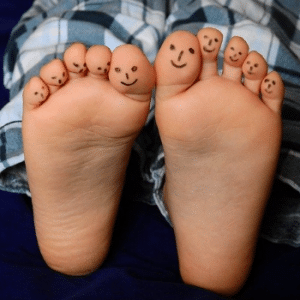Biomechanical & Sports Assessment Sunshine Coast
On This Page:
BIOMECHANICAL SPORTS ASSESSSMENTS
A biomechanical sports assessment is an effective way to assess and examine the health of your feet and legs. This advanced form of assessment is a useful method for diagnosing the root cause of pain in these parts of the body. Undergoing a biomechanical assessment paves the way for a treatment plan to be developed that focuses on your specific needs.
At Sunshine Coast Orthotics and Podiatry, we carry out reliable biomechanical assessments at our clinic. This method allows us to gain a highly detailed understanding and analysis of your feet. It’s a useful and accurate approach to detecting abnormalities in your feet or legs, as well as pinpointing the cause of pain.
For further information or to book an appointment, please get in touch on (07) 5456 2562.
THOROUGH BIOMECHANICAL ASSESSSMENT
Biomechanical assessments begin with taking a thorough history of your symptoms and pain. This gives us the best possible understanding of what’s going on and means we can take account of any problems you’ve experienced previously.
Depending on what further information is required, you’ll be referred for scans such as x-rays, MRI scans, or ultrasound scans to really give clarity about the health of your feet. Please visit our podiatry clinic on the Sunshine Coast to know get biomechanical & sports assessment today.
Benefits of Biomechanical Sports Assessment
A biomechanical sports assessment offers several benefits to athletes, helping them achieve their full potential and prevent injuries. One significant advantage is the identification of movement patterns that may lead to injury or reduced performance. By analysing an athlete’s movements, specialists can identify areas of weakness, tightness or imbalance, and create tailored interventions to address these issues.
Another benefit is improved efficiency in sports performance. A biomechanical assessment can reveal suboptimal movement patterns that, when corrected, may result in increased speed, power and endurance. This allows athletes to perform at their peak for longer periods, giving them a competitive edge.
Lastly, a biomechanical sports assessment can aid in injury rehabilitation. By understanding the root cause of an injury, therapists can develop targeted treatment plans that promote faster recovery and prevent future injuries.
How to Prepare for a Biomechanical Sports Assessment
To ensure you get the most out of your biomechanical sports assessment, it’s essential to prepare beforehand. Here are some tips to help you get ready for your appointment:
Wear appropriate clothing: Choose comfortable, form-fitting attire that allows for a full range of motion. This will enable the specialist to accurately analyse your movements during the assessment.
Bring relevant sports equipment: If your assessment is sport-specific, be sure to bring any necessary gear, such as running shoes, cleats or a tennis racket.
Warm-up before your appointment: Arrive at your assessment with your muscles warmed up and ready to perform. This can help prevent injuries during the testing and ensure accurate results.
Discuss your goals and concerns: Be prepared to communicate your goals, injury history, and any concerns you may have with the specialist. This will help them tailor the assessment to your specific needs.
What to Expect During a Biomechanical Sports Assessment
During a biomechanical sports assessment, you’ll undergo various tests and evaluations to analyse your movement patterns, muscle strength and flexibility. Here’s what to expect during the process:
Initial consultation: The specialist will ask about your athletic background, goals and any current or past injuries. This information will help them understand your specific needs and concerns.
Physical examination: The specialist will assess your joint range of motion, muscle flexibility and strength. This may involve various stretches and resistance exercises.
Movement analysis: Using video analysis, force plate technology or other tools, the specialist will evaluate your movement patterns during sport-specific activities. They’ll identify any biomechanical issues that may be affecting your performance or increasing your risk of injury.
Review and recommendations: Based on the assessment results, the specialist will discuss their findings and provide recommendations for improving your biomechanics. This may include exercises, stretches, or changes to your sports equipment.
3D LASER FOOT SCANS
Every assessment also includes a 3D laser scan of the feet. This provides a detailed analysis of your foot’s structure and can form the basis of custom orthotics if you need them. The 3D scan can also help to give indications about the best type of footwear to improve your symptoms.
IMAGE BASED ASSESSMENTS
In addition to image-based assessments, we also analyse and test a number of areas of your gait and mobility. These include your foot posture, pressure, strength, and coordination, the range of movement you have available, and your gait whilst you are walking and running. Combined with image-based assessments, these detailed analyses give us a highly accurate and in-depth view of the health of your foot.
Based on this, we’re able to recommend the most appropriate treatments for your individual circumstances.
PODIATRY TREATMENTS
The recommendations we make for your treatment will be based on the outcomes of the biomechanical / sports assessment. Depending on the results, there are a variety of different options that might be recommended for you. These include orthotics, inserts for your shoes, or a referral to a specialist footwear service.
Other treatments we might suggest for you include massage and acupuncture aimed at improving flexibility and pain-related symptoms, or referrals to other healthcare professionals for additional treatments or further assessment. We know that every patient is different, and our podiatrist only recommend treatments that are appropriate to your specific requirements.
BOOK YOUR BIOMECHANICAL ASSESSMENT
If you have concerns about pain or other symptoms in your feet or legs, don’t delay seeking professional advice. Based in Kuluin and Sunshine Coast’s leading Podiatrist, Dean is committed to providing our community with high-quality podiatry services. Our assessments rapidly uncover the cause of podiatric problems, so you can begin treatment promptly.
If you could benefit from a podiatry assessment that gets to the heart of your symptoms, please reach out to book your assessment! You can call us at (07) 5456 2562 for any questions regarding foot conditions or problems we treat.
Biomechanical & Sports Assessment Sunshine Coast FAQs
Why is a biomechanical sports assessment important for athletes?
- Biomechanical Sports Assessments are crucial for athletes as they provide in-depth insights into how their body moves and functions during physical activity. Sunshine Coast Orthotics and Podiatry offers comprehensive Biomechanical Sports Assessments that help detect any abnormalities or imbalances in an athlete’s movement patterns. Such assessments are key in identifying any potential risks or areas of weakness that could lead to injury. Additionally, they help in the development of personalised training plans and preventative strategies to enhance performance and reduce the likelihood of sports-related injuries.
How does a biomechanical sports assessment differ from a regular physical examination?
- While a regular physical examination focuses on the overall health and wellbeing, a Biomechanical Sports Assessment dives deeper into the mechanics of an athlete’s body movement. It involves analysing various elements like strength, flexibility, alignment and motion patterns which are typically not addressed in a regular physical exam. This enables a more targeted approach in addressing any issues that may be impacting an athlete’s performance and can reduce the risk of injury.
How long does a biomechanical sports assessment typically take?
- The duration of a Biomechanical Sports Assessment can vary depending on the complexity of the athlete’s needs and the extent of the evaluation required. However, you can typically expect an assessment at Sunshine Coast Orthotics and Podiatry to take around 60 to 90 minutes. This time allows for a thorough evaluation of your movement, gait analysis, muscle strength and flexibility, as well as a thorough discussion about your sporting activities and performance.
Is there any discomfort associated with a biomechanical sports assessment?
- Biomechanical Sports Assessments are non-invasive and cause minimal discomfort. They involve observational analysis and physical tests to evaluate movement and function. However, minor discomfort may be experienced during the assessment from stretching or moving parts of the body that are underused or tight. Rest assured, the assessment is conducted with the utmost care, aiming to keep discomfort to a minimum.
How frequently should athletes undergo a biomechanical sports assessment?
- The frequency of Biomechanical Sports Assessments can depend on a few factors, including the athlete’s sport, their level of competition and any injury history. As generally, we recommend that athletes have a biomechanical assessment at least once a year. However, those involved in high-intensity sports or with a history of injuries may benefit from more frequent assessments. These regular checks can play a key role in maintaining optimal performance and reducing injury risks.



